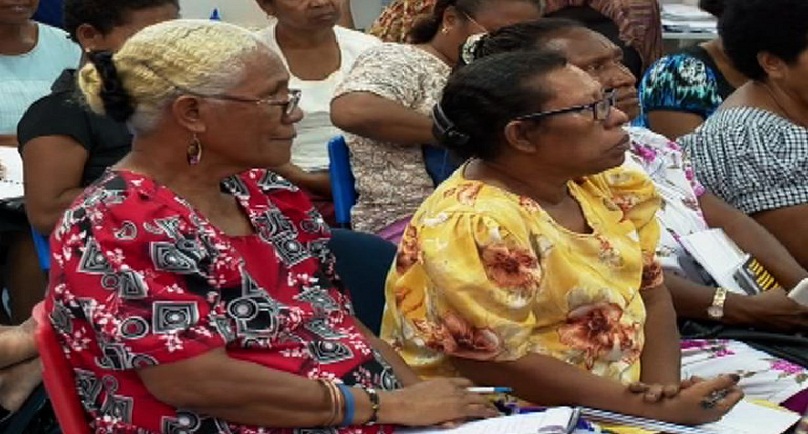By Mickey Kavera – EM TV, Port Moresby
The National Public Service Gender Equity and Social Inclusion (GESI) Policy was approved by NEC as per decision number BGI172/2012 on 13 December 2012, and launched on 30 January 2013.
The policy aims to achieve, by 2017, 30% participation of women in decision-making and a 15% increase in the total female public service.
The Department of Personnel Management (DPM) circular no. 7 of 2013 issued on 20 March 2013, ignited phase one of GESI policy implementation; the circular directed all national departmental heads and provincial administrations to implement the policy.
By July 2014, ten national agencies and two provinces had formally commenced the implementation of the policy.
On 4 July 2014, DPM’s circular instruction number eight of 2014, endorsed those ten national agencies and two provinces to commence phase two by creating GESI positions in agency structures and include GESI planning and budgeting.
DPM has also secured a GESI vote with Treasury, GESI PIP funding with Department of National Planning & Monitoring for funding GESI activities, starting 2015 and onwards.
The passing of the New Public Service Management Act recently cements the public services’ obligation to implement the GESI policy. DFAT has a revised policy of ensuring that 20% of all program funding must be supported.
Unfortunately, the Department of Provincial & Local Level Government Affairs (DPLGA) is yet to fully implement the GESI policy as an important government agency in supporting partner national departments to facilitate and coordinate the rollout of the GESI Policy to the provinces, hence the establishment of the DPLGA STAR Meri Program.
The department’s Star Meri Program begun when a group of DPLGA officers, comprising both female and male staff (with the support of Pio Vunituraga andTau Geno-Hoire from PLGP), developed the DPLGA Star Meri Program to implement the GESI Policy.
STAR means Successful, Transitional, Achiever and Responsive – describing the qualities of a good female leader or manager.
The goal of this program is to support DPLGA to be part of the growing number of agencies and provinces that partner in implementing and mainstreaming the GESI policy in their workplaces. Some proposed activities include programs targeting current and potential women managers in DPLGA.
Key Considerations:
1. DPLGA staff and management recognise the DPLGA Star Meri Program as the driving mechanism to implement the GESI Policy.
2. The program (STAR Meri) creates the road map to allow DPM GESI Policy Implementation Planning workshop to be run at DPLGA to qualify for the formal establishment of a focal point position to signal the commencement of the implementation of the GESI Policy in DPLGA.
3. DPLGA believes that through STAR Meri it can encourage and support the Whole of Government Approach to implementing GESI.
4. It is a requirement to implement the GESI Policy under the new Public Service Management Act
5. DPLGA’s participation of women in decision-making is the lowest among all national agencies as per DPM’s statistics
6. DPLGA as the major national agencies partner in the decentralized government system must be seen as a key agency in the GESI Policy implementation to support the facilitation and coordination of GESI Policy roll-out to the provinces.


